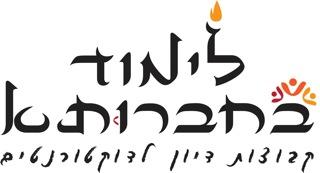Reading: Lewis, David. 1976. "The Paradoxes of Time Travel". American Philosophical Quarterly 13 (2):145-152.
The first half of the meeting was used as an introduction to the group, its purpose and its members. The group's goals were presented to the participants. The subject of the Time Travel Anthology was discussed and clarified.
After each of the participants introduced themselves and their particular interest in Time Travel, the second half of the meeting revolved around the reading.
Inbar Pincu presented the main arguments from the reading. Around the argument of the Time Traveler being able to talk to himself, since he is in the same place in the exterior time, but in different places in his personal time, the discussion brought forth intriguing concepts, such as being able to "cease to exist", but not die; and then just "appear", such as with the idea of teleportation.
From there, the group members debated what does the interaction of the Time Traveler with the society they traveled to represents, and its relation to challenging social norms. We questioned if the Time Traveler is from the future or from the past, and if they can pass moral judgement on the time period they traveled to, based on moral absolutism and moral relativism; and also in relation to fictional dystopian and utopian scenarios. We discussed time in relation to change, and how change can occur in such a rapid manner that it renders the not-so-distant past incredibly bewildering in comparison with the present day; and yet, you can't imagine the future without a reference point.
A variety of popular culture media was mentioned and addressed in the discussion, such as Star Trek (The Original Series), Doctor Who, Good Bye Lenin! (2003), Gone with The Wind (1939), Dr. Stone, The Jetsons and Outlander.

